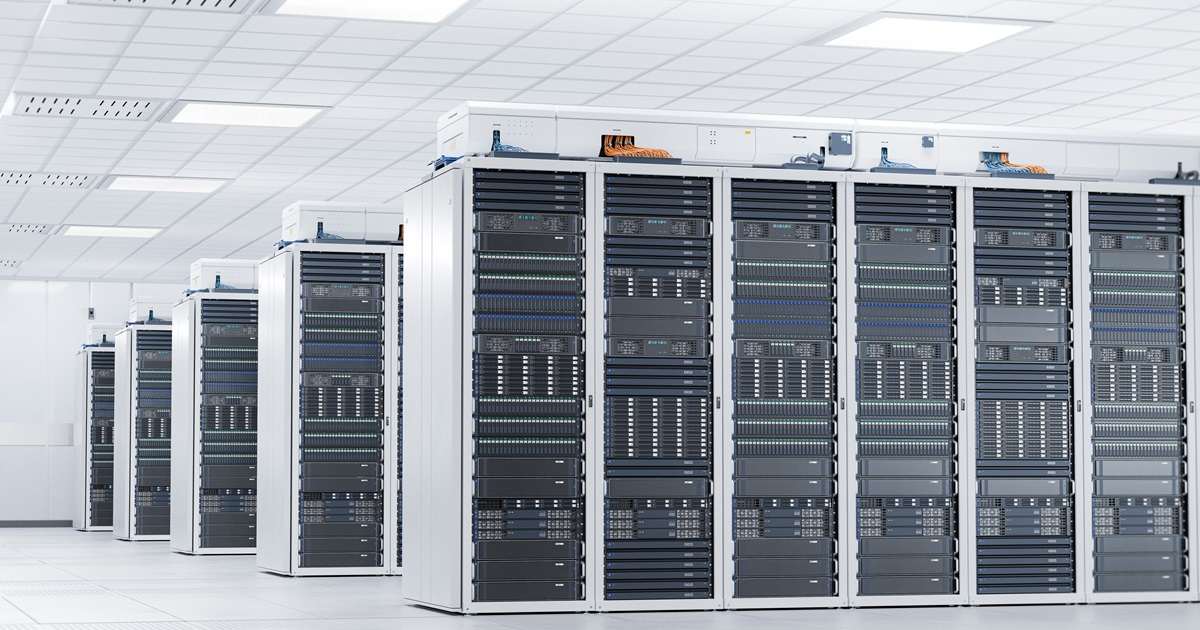
Virtualized Environments
Business Wire | January 09, 2024
VeriSilicon today unveiled its latest VC9800 series Video Processor Unit (VPU) IP with enhanced video processing performance to strengthen its presence in the data center applications. The newly launched series IP caters to the advanced requirements of next generation data centers including video transcoding servers, AI servers, virtual cloud desktops, and cloud gaming.
The VC9800 series of VPU IP boasts high performance, high throughput, and server-level multi-stream encoding and decoding capabilities. It can handle up to 256 streams and support all mainstream video formats, including the new advanced format VVC. Through Rapid Look Ahead encoding, the VC9800 series IP improves video quality significantly with low memory footprint and encoding latency. With capable of supporting 8K encoding and decoding, it offers enhanced video post-processing and multi-channel encoding at various resolutions, thus achieves an efficient transcoding solution.
The VC9800 series of VPU IP can seamlessly interface with Neural Network Processor (NPU) IP, enabling a complete AI-video pipeline. When combined with VeriSilicon’s Graphics Processor Unit (GPU) IP, the subsystem solution is able to deliver enhanced gaming experiences. In addition, the hardware virtualization, super resolution image enhancement, and AI-enabled encoding functions of this series IP also offer effective solutions for virtual cloud desktops.
“VeriSilicon’s advanced video transcoding technology continues leading in Data Center domain. We are working closely with global leading customers to develop comprehensive video processing subsystem solutions to meet the requirements of the latest Data Centers,” said Wei-Jin Dai, Executive VP and GM of IP Division of VeriSilicon. “For AI computing, our video post-processing capabilities have been extended to smoothly interact with NPUs, ensuring OpenCV-level accuracy. We’ve also introduced super resolution technology to the video processing subsystem, elevating image quality and ultimately enhancing user experiences for cloud computing and smart display.”
About VeriSilicon
VeriSilicon is committed to providing customers with platform-based, all-around, one-stop custom silicon services and semiconductor IP licensing services leveraging its in-house semiconductor IP.
Read More

Backup and Disaster Recovery
PR Newswire | October 25, 2023
Scale Computing, a market leader in edge computing, virtualization, and hyperconverged solutions, today announced its Business Continuity/Disaster Recovery (BCDR) Planning Service, designed to help organizations establish a comprehensive, regulated plan for responding to unforeseen downtime. The service provides Scale Computing customers and partners with the tools, guidance, and resources to create a playbook for data backup and recovery, enabling businesses to endure a disaster scenario with minimal loss.
Scale Computing also recently announced that it is a finalist for the Business Continuity/Disaster Recovery Project of the Year in the 2023 SDC Awards for its work with Austrian managed service provider GiGaNet and its long-time partner the Zillertaler Gletscherbahn group. Voting for the SDC Awards is open at sdcawards.com/vote until November 10th, 2023.
Data breaches are one of the biggest and most costly contributors to downtime for businesses. In 2023, the average cost of a data breach globally reached an all-time high of $4.45 million, a 15.3% increase from 2020. Simultaneously, the average length of business disruption following a ransomware attack in the United States reached 24 days last year, up 60% from just two years prior — a significant increase when downtime costs exceed $300,000 per hour for over 90% of mid-sized and large enterprises. For more than half of those businesses, the hourly outage costs range from $1 million to over $5 million. Recovery from an outage adds additional expense from which many enterprises are unable to bounce back.
"Disaster can strike at any time, and every organization needs a consistently regulated playbook for how the business will respond — from action plans to recovery plans for bringing online the mission-critical servers businesses depend on," said Jeff Ready, CEO and co-founder, Scale Computing. "Knowing what systems need to be protected, planning for the ability to recover them, and having a full action plan for recovery should be at the forefront of every IT department's agenda, at the beginning of any infrastructure addition. With Scale Computing Platform, the plan for disaster recovery starts before equipment is even put into production, so IT leaders have a plan in place from day one that they can enact to ensure their business stays up and running, with minimal loss, should disaster strike. Our Business Continuity/Disaster Recovery Planning Service enables businesses to proactively classify systems based on their importance and implement a robust action plan, ensuring that our customers' and partners' critical systems are protected, validated, tested, and ready for recovery at any time."
Whether a minor data loss or a business-wide shutdown, having a well-defined business continuity strategy is crucial to minimize financial impact, ensure continuous employee productivity, meet compliance and regulatory requirements, decrease liability obligations, reduce downtime, and minimize the risk of negative exposure. Scale Computing's BCDR Planning Service includes planning, deployment, documentation creation, and disaster recovery testing, covering every aspect to keep businesses prepared and resilient. The service is offered to Scale Computing Platform customers, which brings simplicity, high availability, and scalability together to replace existing infrastructure for running virtual machines with an easy-to-manage, fully integrated platform that allows organizations to run applications regardless of hardware requirements.
About Scale Computing
Scale Computing is a leader in edge computing, virtualization, and hyperconverged solutions. Using patented HyperCore™ technology, Scale Computing Platform automatically identifies, mitigates, and corrects infrastructure problems in real-time, enabling applications to achieve maximum uptime, even when local IT resources and staff are scarce. Edge Computing is the fastest-growing area of IT infrastructure, and industry analysts have named Scale Computing an outperformer and leader in the space, including being named the #1 edge computing vendor by CRN. Scale Computing's products are sold by thousands of value-added resellers, integrators, and service providers worldwide.
Read More
.jpg)
Server Virtualization, VMware
Business Wire | October 18, 2023
StorMagic®, solving the world’s edge data problems, today announced the immediate availability of a new Software as a Service (SaaS) tool that allows users to easily monitor and manage all of their SvSAN clusters around the world. StorMagic Edge Control simplifies the process and tools required for day-to-day SvSAN cluster administration. SvSAN customers with multiple locations can significantly reduce the time spent managing their edge sites, whether they are using VMware, Microsoft or KVM hypervisors.
“ESG research shows increasing demand for data storage at the edge which fuels an increased need for monitoring solutions that can help address the complexity of storage at the edge,” said Scott Sinclair, practice director at Enterprise Strategy Group. “SvSAN customers can greatly benefit by adding StorMagic Edge Control into their toolkits; the dashboard views and list formats will make centralized data management much easier and more accessible.”
Edge Control delivers centralized administration for SvSAN environments of all sizes. Customers can now manage all SvSAN deployments in any location from a single pane of glass. Dashboard and system views provide a fast but comprehensive status of all of their virtual storage appliances (VSAs), allowing them to keep their environment up-to-date more easily and react faster as needed.
“StorMagic customers of any size can now manage their entire SvSAN estate, whether it’s one site or thousands of sites around the world,” said Bruce Kornfeld, chief marketing and product officer, StorMagic. “Edge Control is particularly interesting for customers who are considering switching from VMware to Microsoft or Linux KVM because SvSAN and Edge Control are both hypervisor agnostic.”
Pricing and Availability
Edge Control version 1.0 is available today from StorMagic. SvSAN customers can download and begin using the software immediately, free of charge.
About StorMagic
StorMagic is solving the world’s edge data problems. We help organizations store, protect and use data at and from the edge. StorMagic’s solutions ensure data is always protected and available, no matter the type or location, to provide value anytime, anywhere. StorMagic’s storage and security products are flexible, robust, easy to use and cost-effective, without sacrificing enterprise-class features, for organizations with one to thousands of sites.
Read More